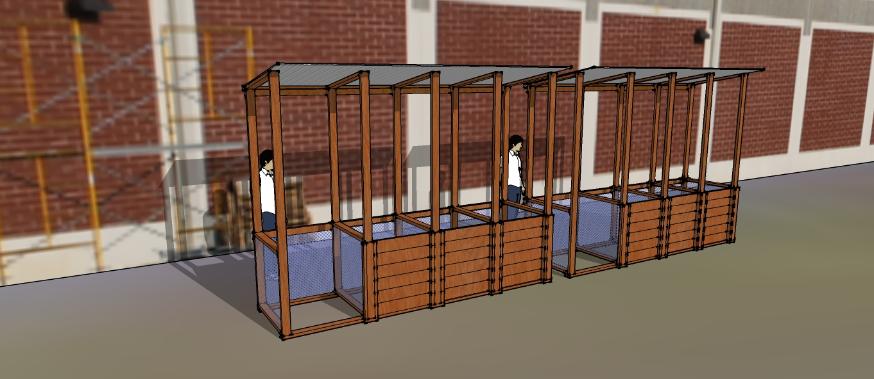Good gardens begin with good soil. Soil is a renewable resource, but we are losing more soil than we are creating. Modern agriculture attempts to circumvent the natural processes that create soil by adding chemical fertilizers. This process is not sustainable. finished compost becomes a useful organic fertilizer that can improve the physical, chemical and biological properties of soil.
Compostable organic materials make up approximately ⅔ of the municipal solid waste stream in the United States. Food waste is especially problematic. Most food waste ends up in landfills, where it decomposes anaerobically (without oxygen) to produce methane, a powerful greenhouse gas. As a result, landfills are responsible for generating 20% of atmospheric methane. When food wastes are allowed to decompose this way, any beneficial organic nutrients that would otherwise be put back into the ecosystem are lost. By creating a composting center, Bluffton High students will learn to reduce the school’s carbon footprint while returning valuable organic materials back to their natural cycles.
The composting center will be expandable, consisting of compost bin units made from weather resistant cedar and hardware cloth for air circulation. With a footprint of 3’ by 12’ each unit will have the capacity to handle 4 cubic yards of compostable material from the school’s cafeteria. In January of 2014, Bluffton High’s National Honor Society Chapter donated funds for the construction of the initial four-bin composting unit. NHS students worked alongside students from the Environmental Engineering Club on an awareness campaign aimed at educating students on what can and cannot be composted.

